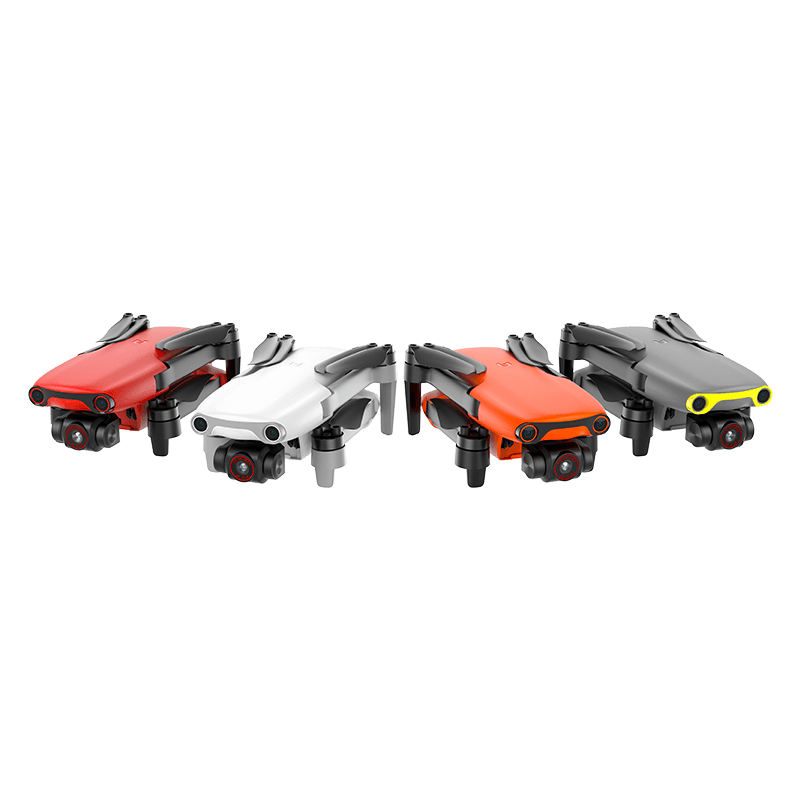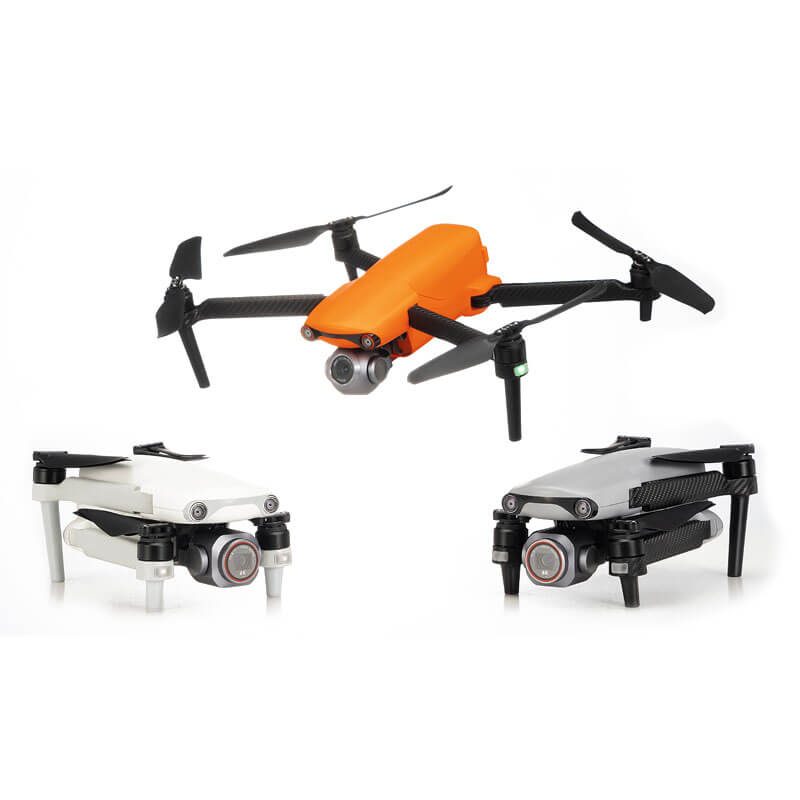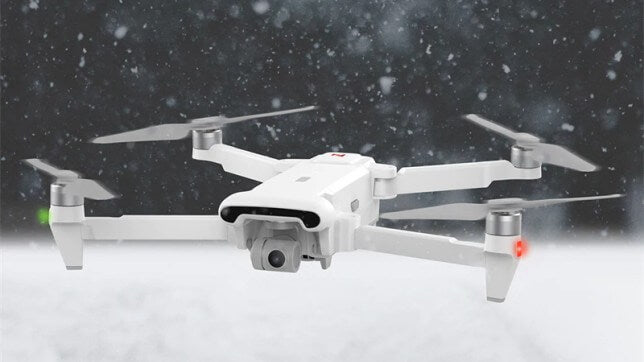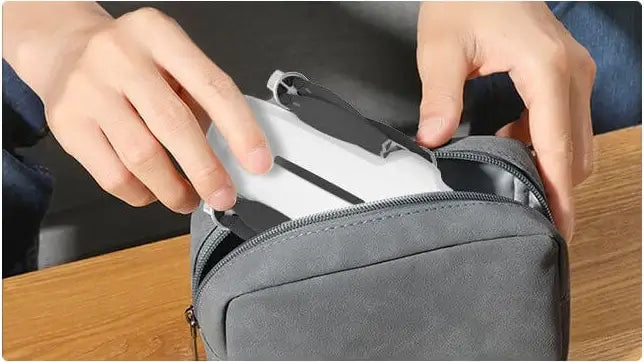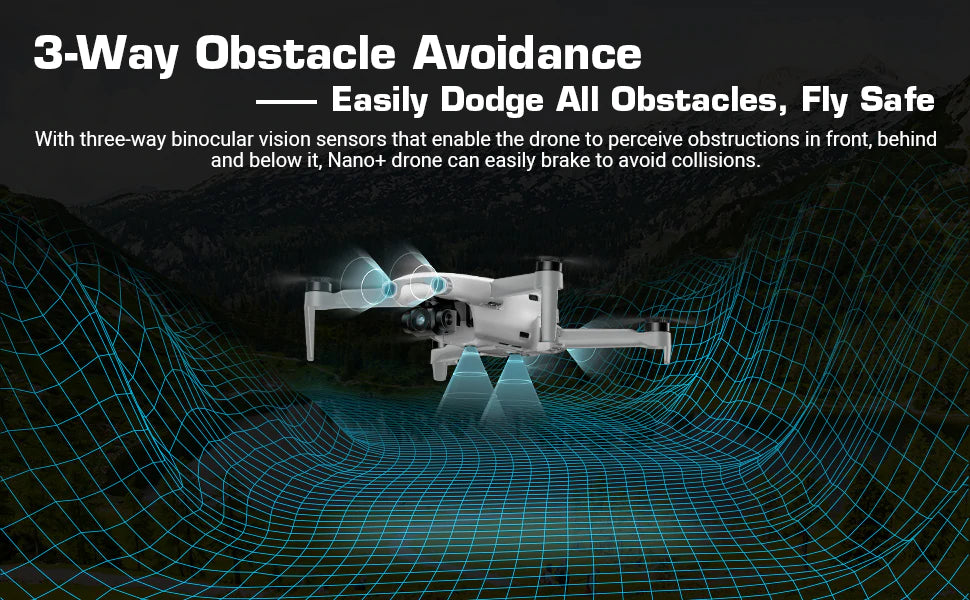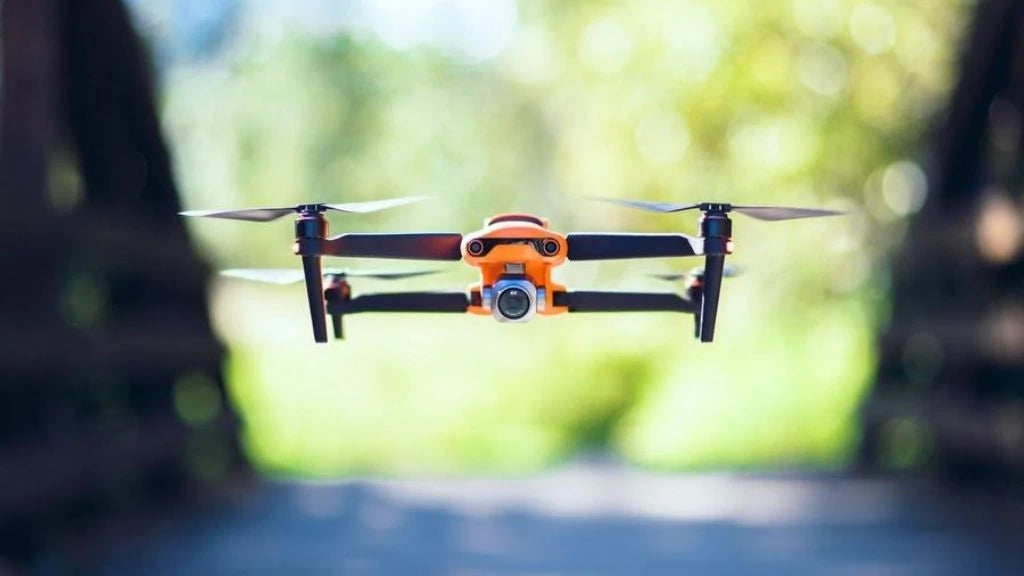What kind of control are you looking for?
While some drones come with their own controllers, others can be flown using a synced smartphone. Handheld controllers are more reliable and more responsive than smartphone controllers, but they can also have a steeper learning curve or increase the price point -- or may only be purchased as an accessory. Other control functions also exist. Some drones take off and land at the touch of a button, while others automatically return or land safely when the battery runs low. Plus, you'll find drones that sync with virtual reality headsets, drones that can lower your voice based on your voice, and drones that can be waved to take pictures.
Flight of the EVO Nano Mini Drone

Front and rear sensors allow the EVO Nano to fly in multiple intelligent flight modes and obstacle avoidance.
Equipped with a 3-axis gimbal, the EVO Nano drone's camera records beautiful HD footage at 60 frames per second, and the EVO's controller features a built-in 3.3-inch OLED screen with real-time HD dual-band transmission and a 7KM range. Connect your compatible iOS or Android device with the AUTEL EXPLORER™ APP for more functionality. Access autonomous flight modes such as Orbit, GPS Follow, Dynamic Tracking, Viewpoint and Waypoint Mission Planning, and customize settings to your personal preferences.
AUTEL EVO is equipped with a first-class camera

The highly anticipated EVO, announced at CES 2018, is finally shipping.
The EVO is advertised as having a top-notch camera, but also offers many new features for this type of drone, such as a built-in display on the controller so you can fly your phone without plugging it in, backward obstacle avoidance, and 30-minute flight time. As well as the current standard of 4.3 miles and 7 kilometers.
A lightweight yet easy-to-fly drone that uses a camera as its starting point, capable of capturing 4K video and 12MP photos. DJI Mini 2 and EVO Nano and strong contenders. What makes these two drones one of the best drones for beginners is their ease of use. In terms of piloting, it features automatic takeoff, precise hovering, and a system that sends the drone back to you when the battery gets too low. When it comes to photography, with just a few clicks, the camera will automatically start recording. Additionally, the DJI Mini 2 drone and EVO Nano mini Drone support 10km of HD video transmission, which can be synced to your app for near-instant editing or sharing. The small drone weighs less than 250 grams (8.8 ounces), which is about the weight of an apple. It's also a foldable drone that fits into the pocket of a mountaineering bag. So, just follow the trails - the higher you go, the better the views will always be.
Key Features: Camera: 4K/30fps video, 12-megapixel stills, Flight time: 31 minutes, Weight: 249g, No FAA registration required, 4K video capability with zoom, long flight time, stable in air, even with some wind.
No obstacle avoidance sensor is the downside of the DJI Mini 2 drone
This DJI drone has a maximum flight time of 31 minutes, a wind resistance rating of 5, and can withstand wind gusts of up to 25 mph without unbalancing the camera. Likewise, the EVO Nano drone not only has Obstacle-avoidance sensors, and even more sophisticated lens selection, Leica lenses, and autofocus mode, this mini-drone is designed to help you shoot - even from the top at 13,000 feet. The 3-axis gimbal responds to turbulence, ensuring the camera captures stable 12mp photos or 4K video.
Camera Specifications of the DJI Air 2S
The DJI Air 2S is small enough to play stunning 5.4K video and 20-megapixel photos. The camera uses 5.4K/30fps video frames, 20-megapixel stills, has a flight time of around 30 minutes, and weighs around 1.3 pounds.
Also compared with the EVO Nano, both have four-way obstacle avoidance detection, long flight time, three-axis gimbal, video stabilization, and the ability to shoot high-quality videos and photos as the main features. The Air 2S is a DJI drone that gives you more than the Mini 2. However, as one of the best drone choices for beginners, it's nearly $1,000-plus. As a disadvantage, in an almost close configuration, EVO Nano will be cheaper and more expensive. Who would reject a more cost-effective investment product?
The EVO Nano camera can also record high-speed motion photos for detailed raw images and has Smart HDR that automatically merges multiple photos. Other smart tech includes tracking that lets you better track moving objects and ambient sensing that helps keep drones from flying into walls and trees.

